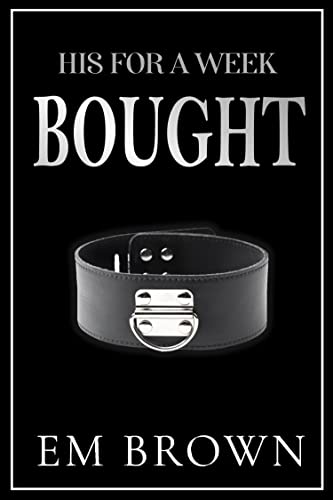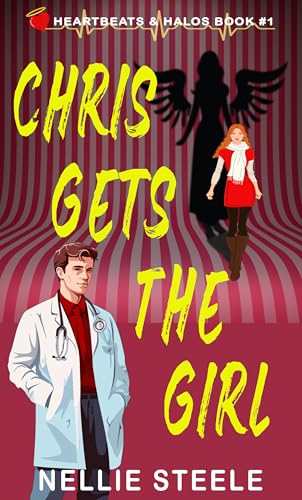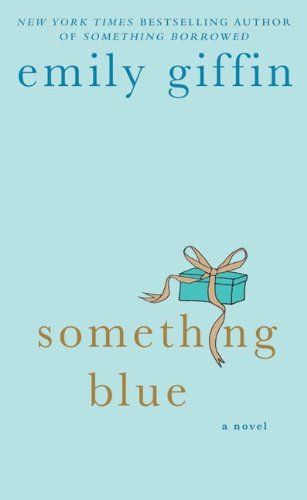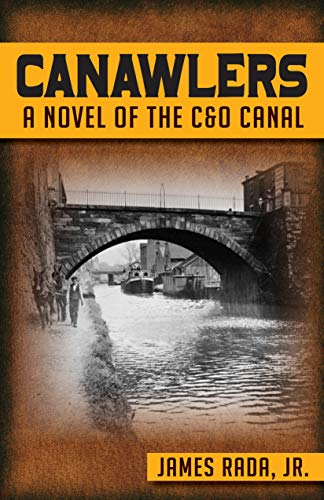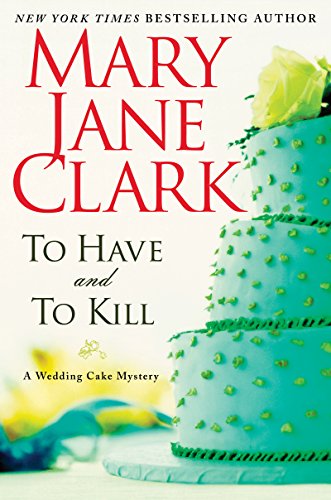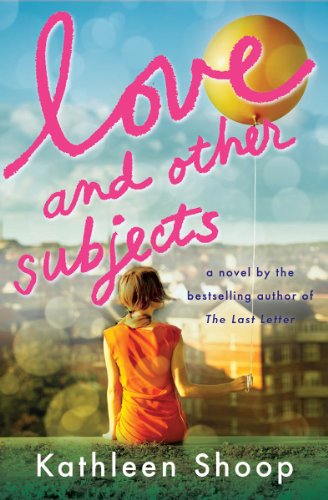and 81 rave reviews!
Entanglement (YA Dystopian Romance)
by Dan Rix
Hotheaded heartthrob Aaron Harper is scheduled to meet his half in twenty-nine days, and he doesn’t buy a word of that entanglement crap. So what if he and his half were born the same day and share a spooky psychic connection? Big deal. After breaking one too many teenage girls’ hearts, he’ll stick to brawling with the douchebag rugby players any day.
Until the day a new girl arrives at school and threatens everything he takes for granted.
Cold and unapproachable, Amber Lilian hates the growing list of similarities between her and the one boy she can’t read, Aaron: born the same day, both stubborn, both terrified of meeting their halves. . . . All the more reason not to trust him. That she would rather die than surrender herself as her half’s property is none of his damn business. But once lost in Aaron’s dangerous, jet black eyes, she’s already surrendered more than she cares to admit.
Tangled in each other’s self-destructive lives, Aaron and Amber learn the secret behind their linked births and why they feel like halves—but unless they can prove it before they turn eighteen, Aaron faces a lifetime alone in a world where everyone else has a soulmate . . . and he’ll have to watch Amber give herself to a boy who intends to possess not only her body but also a chunk of her soul.
5-star praise for Entanglement:
“Fantastic…Definitely one of the best young adult novels I have read in quite a while. It was well written, fast-paced and the romance was believable…”
“…Dan Rix’s dystopian world is fresh and just a bit terrifying to behold…”
an excerpt from
Entanglement
by Dan Rix
Copyright © 2014 by Dan Rix and published here with his permission
ONE
28 Days, 19 hours, 15 minutes
“Scar tissue,” said the doctor, “here.” She tapped the white lump on the MRI scan.
“Is that in my brain?” said Aaron.
“Just touching it, actually. Between the grey matter and the skull. Aaron, how long have you been having these headaches?”
“Since I was a kid. It’s gotten worse recently.”
“Well, the good news is it’s not cancerous.” The doctor stretched on a pair of latex gloves and probed the back of Aaron’s head with two fingers. “The pain is always here?”
“Yeah, like something tugging back there.” Aaron Harper shifted, still jumpy from the MRI, and his sticky palms suctioned the paper off the exam table with an irritating crinkle. “What’s the bad news?”
“Pardon?”
“You said the good news is you don’t think it’s cancerous. What’s the bad news?”
He felt the doctor’s breath on his scalp.
“The bad news is that according to your MRI, that scar tissue is right here—” she tapped the very back of his skull, “in the region of your clairvoyant channel, possibly obstructing it. Since you’re almost eighteen, my guess is you’re experiencing a boost in clairvoyant activity with your half. Hence the inflammation in the surrounding tissue.”
Aaron fought the urge to swallow. “But we’re okay, right? Me and my half? I mean, I would have felt if something was blocking us.”
“Well…” the doctor scrunched up her eyebrows, “not necessarily. I doubt you’ll notice the symptoms until you meet her. After that, it really depends on both of you.”
“The symptoms of what?”
With a whip-like snap that made Aaron flinch, the doctor peeled off her gloves. “Aaron, I’m sorry, but with that scar tissue blocking your channel, your half could literally be standing right in front of you—kissing you even. Part of you is going to feel like she’s not really there.”
***
In the Sansum Clinic parking lot outside the Radiology wing, Aaron jabbed at his Mazda’s ignition but couldn’t slot the key. His hand still trembled from the doctor’s words.
His half.
The girl born at the exact same time as him, somewhere else in the world. Like all seventeen-year-olds, he was scheduled to meet her on his eighteenth birthday.
Now it felt like a death sentence.
The key lodged. He cranked the ignition and thrust his foot down, and the tires burned out with a screech. Smoke rose in the rearview.
In twenty-nine days, he was supposed to meet his soul mate. Eighteen years of waiting, wondering, fantasizing…looking forward to someone perfect.
Now this crap.
***
That evening as the buzzer concluded the first league volleyball game between Pueblo High School and Corona Blanca, Aaron, Pueblo’s starting setter, ripped off his jersey and flung it into the stands.
His coach grabbed his shoulder. “Cool it, Harper.”
“Where the hell was Franco tonight?” said Aaron, stooping to catch his breath.
“He’s eighteen now.”
“Coach, it takes forty-five minutes to win a volleyball game. He can’t leave his half for forty-five minutes?”
“And I wouldn’t ask him to,” said his coach. “Just like I won’t ask you after your birthday.”
With a nervous twinge, Aaron recalled his visit to the doctor. All the things he didn’t get to look forward to. He stood, shrugged off the coach’s hand, and made for the exit.
His coach called after him. “Put a goddamn shirt on, number eleven.”
Aaron punched the wall on his way out. Outside the gym, the night cooled his sweaty skin, and Corona’s fans parted around him. He never reached the bus, though.
Someone’s hard shoulder crunched into his spine. In that split-second of contact, he felt a shock-like twinge at the back of his skull, then something crawling inside his scalp. He staggered forward and grabbed the back of his head. But the skin wasn’t broken.
Aaron spun toward the culprit and saw a figure in a gray hoodie vanish into the crowd of Corona fans, oblivious.
Aaron started after him. “Hey!” he called, but the figure slipped out of view. Aaron charged through green-jerseyed fans. He shoved aside a Corona player and saw a flash of gray hoodie. He lunged.
But his hand closed on empty air.
The figure darted past the last cluster of students and receded into the night. Aaron tore after him, and for a brief, blind moment, the wind whistled in his ears—before he collided with a chain link fence. He caught his breath and peered into the shadows beyond the fence.
There, under a dark hoodie, two pale blue eyes—Aaron blinked. No, just shadows.
He slammed the fence in frustration. As the pain in the back of his head subsided, his skin formed goose bumps.
It was the same spot. Exactly where the MRI showed a lump of scar tissue in his brain. The headaches were one thing, just pressure on his brain, but this—this had felt like a piece had actually torn off. And all because a stranger in a gray hoodie bumped into him.
The doctor he had seen earlier wasn’t the first to predict that he and his half would have problems. He had seen a dozen doctors the last year alone, brain surgeons and clairvoyant specialists, and they all said the same thing; the scar tissue would hamper his emotional connection to his half, they just didn’t know how much.
No surgeon dared operate on him. The lump of scar tissue was pushing up against his clairvoyant channel. One mistake with a scalpel could sever it, destroying the already delicate connection between Aaron and his half. They would both die.
Aaron was still standing at the fence, a new wave of dread soaking through him, when he realized there was someone behind him.
“Number eleven, right?”
Aaron recognized the shaggy-haired guy as Corona Blanca’s starting setter.
“Yeah, what’s up?” said Aaron.
The other setter extended his hand. “I wanted to meet you,” he said. “I was watching you set during the game, and with a pair of hands like yours, Pueblo should have won.”
“Thanks,” said Aaron, as they shook hands, “the better team won.”
Corona’s setter shrugged. “Hey, a couple of our players are heading down to the beach. We got a bonfire going and a couple of coolers. You feel like a postgame party?”
“Maybe next time.”
“No pressure,” said the setter, and he headed back to the cluster of green jerseys.
Aaron rubbed his scalp again. It still felt raw. As he lowered his hand, he wondered if the doctor had been optimistic. Maybe symptoms would show up even before his birthday. Like tonight, the searing pain caused by the hooded figure. Maybe this was his last night as a normal seventeen-year-old.
If it was, he damn well wasn’t going to waste it lying in bed.
“I changed my mind,” Aaron called. “Where’s the bonfire?”
The setter glanced back, grinning. “Arroyo beach. Once you hit the sand, turn right. You can’t miss us.”
***
He really couldn’t miss them. Aaron felt the bonfire’s heat a good sixty feet from the flames, which leapt above the silhouettes of what looked like Corona Blanca’s entire school. And some.
They had taken over the whole beach, crowding around open coolers and sitting on pieces of driftwood, drinks in hand, their faces glowing reddish-bronze. Aaron wished he hadn’t come. This wasn’t his school.
At least he could have changed out of his damn red and white Pueblo volleyball jersey—
“Number eleven, over here!”
Aaron spotted Corona’s setter along with the rest of the Corona Blanca volleyball team chowing down on pizza off to his right. As soon as Aaron reached them, he felt an icy sting as the setter slapped a can of soda into his palm.
Aaron took a swig and scanned their surroundings. A brief flicker of red by the base of the cliffs caught his attention. At first he thought it was an ember from the fire, but as his eyes adjusted to the darkness, he made out two seated figures on the beach just beyond the lighted radius of the bonfire. He recognized one of them.
The figure in the gray hoodie.
The other one was a girl, a blonde with long, wavy hair, and Aaron couldn’t quite tell from the distance, but she looked pretty—and very bored. As Aaron watched, the hooded figure slipped a bright red object into his pocket.
Aaron grabbed the sleeve of Corona’s setter, his heart racing. “Who is that?” he said, nodding to the pair of them. “Over there in the dark.” He didn’t want to lose sight of the figure again.
The setter and a few of his teammates followed Aaron’s gaze. They all laughed.
“You noticed her too, huh? Welcome to the club,” said the setter. “That’s Amber Lilian. New student at Corona Blanca.”
“Sure, she’s eye candy,” said number ten, “she’s also sassy as hell.”
“I mean the guy,” said Aaron. “He bumped into me earlier.”
The team went silent. Then the setter spoke in a much quieter voice. “That’s Clive Selavio. Also new.”
“Her half?” said Aaron.
“Her boyfriend, but they have the same birthday, so it’s pretty much a sure thing. I think their families moved here together.”
Aaron nodded. Same birthdays. Given that halves were usually born near each other—often within the same city—halves did sometimes find each other before their birthdays. But people got it wrong too. He looked back at the boy and girl seated on the driftwood only to find that once again, the hooded figure had vanished. The girl sat alone.
Aaron scanned the beach, now frantic. Something weird had happened when Clive bumped him, and he needed to figure out what. Aaron couldn’t find him in the crowd, though, and his eyes darted back to the girl. Maybe she could explain.
“I’m going to go talk to her,” said Aaron, making up his mind before she, too, could disappear. He barged through what was now a Corona Blanca team huddle and slogged toward the girl.
A player muttered behind him, “Where do these Pueblo guys get their nerve?”
“It’s because he doesn’t have to live with the embarrassment of seeing her at school. I’d talk to her if she was a Pueblo chick.”
“Nah, it’s because he was running behind-the-back quick sets all night—”
Aaron ignored the rest. As he trudged through the sand, he was more concerned with what in God’s name he was going to say to this girl once he got to her.
***
Amber Lilian was way more than just pretty, he realized, when she finally glanced up at the sound of his approach, the gleaming whites of her eyes warning him not to take another step. Caught in the girl’s predatory stare, Aaron felt his pulse quicken as he covered the last few feet.
“I need to talk to you about your boyfriend,” he said, sitting next to her.
She eyed the narrow gap he’d left between them and, without a word, edged away from him.
He tried again. “You know, that guy in the hoodie—”
“Why are you even here?” she said, interrupting him. “You guys lost.”
“I’m aware of that.” Aaron undid his laces and kicked off his shoes. “So, about that guy—” He glanced up, but the sight of her up close caught him off guard, and he trailed off. She brushed her hair behind her ear, still watching him. So it was a staring contest. Fine. Except staring into Amber’s strikingly green eyes gave Aaron the same bad feeling he got at zoos when he accidentally locked eyes with the caged panthers—the ones that could rip his throat out.
Aaron felt his gaze slipping and broke their stare, noticing with relief that she broke at the same time.
“He’s not my boyfriend,” she said.
Heart still racing, Aaron nodded to the group of green jerseys he had come from. “Your school’s volleyball team says he is.”
“I think I would know,” she said, flashing him another warning look.
“Then who is he?”
“Do you actually care or is this just an excuse to talk to me?” she said.
On any other day, Aaron would have juggled coals as an excuse to talk to this girl, but tonight, he worried more about the throbbing pain at the back of his skull and what Clive Selavio had done to cause it. He tried another angle. “What was that red thing he showed you earlier?”
“Nothing,” she said, a threatening tone in her voice as she edged away from him again.
“So you guys are the real deal,” he said, “same birthdays and all?”
“So what?” she said. “Why is everyone so obsessed with birthdays? I’m going to belong to my half for the rest of my life. Can’t I just be a normal seventeen-year-old right now?”
Aaron blinked. She had just put into words exactly what he felt about his own birthday. Before he could respond, though, he sensed the tension in her body as she fought a shiver.
“Are you okay?” he said. “You look cold.”
“Don’t even think about putting your arm around me.”
“That wasn’t the question.”
Amber glared at him, then laughed to herself. “As if you would understand. You probably downloaded that dumb birthday countdown app on your cell phone and check it every five minutes just like everyone else.”
“Actually, I do understand,” said Aaron. “I’m dreading my birthday too. I have scar tissue in my brain blocking my clairvoyant channel, so when everyone else gets to meet their soul mate, I get to see what’s missing. And I didn’t download that app.”
His answer must have surprised her. She stared at him, mouth open, and forgot to brush away the curtain of hair that fell in front of her eyes.
Just then, a commotion near the bonfire drew their attention. A group of juniors was talking excitedly, and as others joined in and cheered them on, they took off their shirts.
Two guys ran over to Aaron and Amber’s log. “Hey, like twenty of us are going skinny dipping, you guys want to come? Dominic’s already in the water.”
It was obvious they were here to recruit Amber. Big surprise.
“No thanks,” said Aaron. “We’re good.”
“Is it just pervy guys?” said Amber. “Or are there actually girls too?”
“There’s girls too. It was their idea, in fact.”
Then, to Aaron’s bewilderment, Amber said, “Okay. I’ll come in a second.”
“Cool, see you down there!” The two guys raced back to the water, and when they thought they were out of sight, they grinned and high-fived.
“Can I hide my cell phone in your shoes?” Amber said, facing Aaron.
He gaped at her. “You’re kidding, it’s freezing out there—”
But she was already pulling her sweater over her head. He felt a rush of air as her hair came loose from the hood and swished back. She smelled like the beach, like salt and sunscreen.
“So do you have a name, number eleven?” she said, removing a large pair of peacock feather earrings that had been hidden under her hair.
“Aaron Harper,” he answered, still in disbelief.
“So when’s this birthday you’re dreading, Aaron?”
“March thirtieth.”
Amber froze, and for the first time that night, it seemed, she let down her guard. “Mine too,” she whispered.
Aaron felt his heart leap, and for a moment they couldn’t look away from each other—
“Amber, put you goddamn clothes back on,” said a cold, drawling voice behind them.
Aaron turned around as Clive Selavio, the figure in the gray hoodie, emerged from the shadows at the base of the cliffs.
***
Two pale, milky blue eyes glowed beneath the shadow of his hood. Though muscular, he was shorter than Aaron by a few inches, with perfect, if not cruel features. Like Amber’s. Too perfect.
So this was the guy who knocked into him. Aaron’s first impression was that Clive couldn’t have been seventeen. Twenty, maybe.
“You—” Clive said to Aaron, “thanks for babysitting her. Now you can leave.”
Aaron didn’t budge. His mind was still reeling with the news that he and Amber had the same birthday. Plus he had unfinished business with Clive. “You shoved me after the game, remember? What the hell was that?”
Clive ignored him to deal with Amber, who was now shivering in just a T-shirt. “Put your sweatshirt back on.”
“Actually, I’m going skinny dipping,” she said.
“You are not fucking skinny dipping,” said Clive.
“If she wants to take a dip, let her take a dip,” said Aaron.
Clive’s gaze snapped back to him, and Aaron felt the corner of his mouth twitch as their eyes burned into each other. “I thought I told you to leave,” he said.
“I asked you a question,” said Aaron.
Clive’s eyebrows shot up. Then he ran his hand over his scalp and behind his head, nudging off his hood, and Aaron saw that both sides of his thin, shaved head were etched with deep scars. As though his face had been peeled off and reattached. “The thing is, number eleven…” he said, rounding the log to Aaron’s side, “you know this beach belongs to Corona Blanca, and you know that Amber is off limits, so why are you still here?”
Aaron noticed a red glow in the pocket of Clive’s shorts. Clive saw where he was looking and quickly covered it.
“What’cha got there?” said Aaron, certain he could now feel a gentle tugging behind his head. Maybe provoking this guy was a bad idea.
“It’s nothing,” said Clive.
“No, it looks like you have something in your pocket.”
“It’s just a glow stick. It’s nothing.”
“If it’s just a glow stick, then show it to me,” said Aaron.
Clive’s eyes became slits, and without another word to Aaron, he spun, grabbed Amber’s sweatshirt, and forced it back over her head. “Get up. We’re leaving.”
“Clive, stop it!” she yelled, shoving him off. “People are watching.”
He pinned her against the driftwood. “Think I give a damn?”
“Clive, you’re hurting me—” She scratched his arms, but Clive was stronger, and he dragged the fabric down over her face, suffocating her screams.
It was crossing the line.
Aaron lunged forward, closed his fist around Clive’s collar, and yanked him back. “Not while I’m here, jerk—”
He ended up in the sand, Clive on top of him.
“Cut the crap!” Aaron yelled, flinging Clive’s hands off his neck. Then he heard a sound like the rumble of crashing surf—the sound of running feet.
Clive jumped away from him, and Aaron stood, as Corona Blanca’s entire student body jammed into a ring with them at its center. The excited mutters quieted when a dripping wet senior stepped into the circle.
From his braided rat tail and the green letterman jacket the senior wore over nothing but a wet pair of boxers, Aaron recognized him as Corona Blanca’s rugby star, Dominic Brees. He grinned, flashing a broad mouth packed with shining white teeth. Then, to Aaron’s horror, he chanted, “Fight—fight—fight—” and within seconds, the whole school joined in.
Clive grabbed Dominic’s jacket. “You better be able to get me out of this,” he said. “I’m dead if my father finds out I got in another fight.” Evidently, Clive didn’t want the attention any more than Aaron did.
Dominic laughed and raised his hands, silencing the crowd. “We’ve had a change of plans,” he yelled. “Corona Blanca’s Clive Selavio will now race number eleven from Pueblo High School all the way out to the buoy!”
Aaron scowled. Clearly this was Dominic’s ploy to get more people in the water. Unfortunately, it worked. The spectators roared and changed their chant to, “Buoy—buoy—buoy—” Dominic slapped Clive on the back and receded into the circle, deserting him before he could protest.
Aaron scanned the shouting faces, trying to calm his breathing. How the hell had he gotten himself in this situation?
Of course it was that girl, Amber, who he noticed was conveniently nowhere in sight. For a night out, it was fairly typical, he supposed, as the crowd started booing him; he never quite managed to keep his damn mouth shut. At least not when it counted.
Aaron glanced back at Clive, and their eyes met across the ring. He had a hunch Clive would back down, and he prayed he was right because he wasn’t about to humiliate himself and disgrace his school. He whipped off his shirt and flung it to the sand.
The crowd cheered. Point for Pueblo.
Slowly, the corner of Clive’s pale, chapped lips tightened into a smirk. He tugged his hoodie over his head and laid it carefully on the driftwood, then he started on the buttons of his collared shirt, and the crowd went berserk.
Aaron stared at him. So they were actually going to do this.
***
Clive cheated, bolting for the water a full second before Dominic shouted, “GO!”
Aaron kicked off the sand and tore after him. He felt a deep rumble followed by a spray of mist, and from out of the darkness, a film of foamy surf slashed across his ankles.
There was no sign of a buoy, not even a line marking the horizon, just blackness. Thankfully Clive had kept his undershirt on because all Aaron could do was follow his bobbing white silhouette as they hurled themselves into the pounding surf.
Aaron dived under a wave and icy brine flooded his nostrils. He broke out into the open water, neck and neck with Clive. After a few minutes, he lost track of time. Gradually every square inch of his skin went numb with cold.
Then Clive’s splashes stopped.
But there was nothing up ahead. Aaron panicked. Had he followed a rogue wave? Was he in fact miles past the buoy, lost?
He tried to find the shore, but the water stung his eyes and blurred everything. He couldn’t even see the bonfire.
Something moved in the darkness ahead of him, and all at once, the pungent smell of salt and rotting fish rushed over him, filled his lungs, choked him. Right before a wave sucked him under, he saw huge masses shifting and blotting out the stars. He surfaced, terrified, to the sound of barking—violent, piercing barks that echoed off the water. Aaron clutched his ears.
There were splashes all around him, and he was aware that something else was swimming in the water with him—something big. He felt a thrust of cold water against his knees as a huge creature swam past him.
From somewhere behind him, he heard Clive shout, “Sea lions!”
More barking, more splashes, and more things swimming past him. Aaron twisted to get away from them, but the turbulence from their flippers pulled him back.
A moment later a white shape loomed in front of him, and he reached his arms out just in time to stop his face from colliding with hard metal. The buoy.
With Clive’s help, he tipped it over so they could rest the upper halves of their bodies. Underwater, Clive’s pocket emitted an eerie red glow, tinting the water around them purple.
“I won’t drown you for talking to Amber,” said Clive, after they caught their breath, “but do me a favor, okay? Don’t go near her again.”
“How about you quit treating her like dirt,” said Aaron.
Clive snickered. “Number eleven, you know better than to tell a man how to treat his own half.”
“Too bad she’s not your half,” said Aaron. “She’s only seventeen.”
“Yeah, but we were both born on March thirtieth.”
Aaron spat into the water, cleansing the salty taste from his mouth. “Then it sounds like we got a problem, Clive, because I also was born on March thirtieth.”
Clive faced him abruptly, sinking his face into shadow so only the glint of his pale, unblinking eyes shone in the darkness. As a passing swell tugged at Aaron’s feet and weakened his grip on the buoy, he wondered if he could defend himself if Clive tried to kill him right now.
“I’m only going to tell you this one more time,” said Clive finally. “Don’t go near her again.”
“Or else what?” said Aaron.
“Tell me you have a smarter question.”
“Yeah, one. What’s in your pocket?”
To Aaron’s surprise, Clive actually reached into the water and pulled it out. Aaron thought the bright object was, in fact, a glow stick, until he leaned closer.
It was a glass vial, rounded at both ends so it was completely sealed. Inside, a glowing red liquid crawled along the glass.
“Do you know what this is?” said Clive, smirking, his face now fully illuminated.
“Plasma?”
“This is what drips out when you cut a hole in your clairvoyant channel.”
Aaron felt a wave of cold, separate from the ocean. “Is it yours?”
Clive shook his head. “Whosever it is, they’re sorely missing it right now. Want to hold it?”
Aaron took the vial from Clive, but when the glass touched his skin, the sudden stabbing at the back of his scalp nearly made him drop it, like something trying to exit his head through too small a hole. The red fluid scurried inside of the vial, forming tendrils, as if searching for cracks. And Aaron had the impression that the vial was somehow filling up, glowing brighter and brighter, too bright to look at—
“Hey, how’d you do that?” said Clive.
“Hold on,” said Aaron, now mesmerized by the luminous substance. The glass, he noticed, was stamped with some sort of ID code.
“Give it back—” Clive lunged for the vial.
Aaron held it out of reach, straining to make out the letters, but Clive caught his wrist. The impact splayed Aaron’s fingers wide open, and in slow motion, the vial flew from Aaron’s palm, bounced off the buoy, and plopped into the water.
***
“Shit!” Clive plunged his arm in, but the vial slipped through his fingers, briefly lighting their toes on its way to the bottom.
Clive dived. And Aaron had no choice but to dive in after him. About eight feet down, blind and out of breath, Aaron clamped his arm around Clive’s ankle and took a bare heel to the forehead. He held on, though, righted himself, and thrust down hard. With sheer will, he hauled Clive out of the ocean and forced him against the buoy.
“Let it go!” Aaron yelled. “It was my fault.”
“You idiot,” Clive gasped, “you stupid idiot! Now we’ll never find it.”
“Then it’s lost,” he said. “It could be thirty feet to the bottom. What was that thing, anyway?”
They both looked down as they caught their breath, and their last glimpse of the vial was a fuzzy dot, no brighter than the reflection of a star, before it was gone.
“My father’s going to kill me for this,” said Clive.
Aaron let go of him and lowered himself into the water. “Come on, let’s go back. It’s freezing out here.”
When Aaron made it back to the beach, he was relieved to find that most of Corona Blanca had gone home, and the few smoking weed by the bonfire’s dying embers had forgotten about his and Clive’s race to the buoy.
Aaron reached his shoes, still disconcerted by what he’d seen in the vial and determined that he would have nothing to do with Clive Selavio, his vial, or Amber Lilian ever again, Clive’s half or not. No point in trying to see her if the guy was that protective. Besides, Aaron and Amber’s birthday was only a month away. Then they would know.
There was something in his shoe, wedged down by the toe. Aaron pulled out a bright, powder blue smartphone.
Amber’s cell phone. Damn.
***
When Amber pulled in front of Dominic Brees’s gate to drop off Clive, she felt his body go tense—as it usually did when she was doing everything wrong.
“So you’re making me walk up the driveway?” said Clive, and Amber barely heard the vulnerability beneath his irritation. He was getting better at hiding it now when she pushed him away, which made her nervous.
“Can you just go?” she said. “I’m really tired.”
“You sure got cozy with number eleven, didn’t you?” he said.
She sighed. “Why do you always do this?”
“I’m keeping you safe,” he spat.
“Wow,” she said, “I must really be something if every guy I meet is trying to steal me away from you.”
“I saw the way he looked at you,” he said.
“Actually, Clive, he was asking about you,” she said, and all at once, her frustration came rushing back. Of course she would finally meet an interesting boy with the same birthday as her, only to have Clive obliterate her chances, as always, of the boy ever talking to her again. She sighed, wishing she knew more than just his name.
“Amber, he lost the vial.”
“Then maybe you shouldn’t have stolen it from your dad.” Amber relished the wounded flare in Clive’s eyes. To torment him even more, she smiled sweetly, twirling her hair around her finger, and decided he would be the one who looked away first.
But Clive leaned over her instead, and his breath prickled her eyelashes. “You’re going to be powerful because of who I am.”
Amber rolled her eyes and gazed out her window. “Do you think I care?” she said.
“Look at me,” he whispered.
She didn’t say anything, just stared straight ahead.
“Look at me!”
Finally, skin crawling, she faced him.
“You’re pure blood,” he whispered, “mixed with mine—imagine our inheritance, Amber.”
And then, while she was still glaring at him, he came the last few inches and kissed her. She let him, because it was easier to surrender the little things. Because she knew the part of her that resisted him was wearing out, and eventually there would be nothing left.
She used to think Clive was sexy in a scarred up, feral kind of way, but now it hardly mattered what he looked like. What frightened her was the part inside, the part she could taste.
When Clive had finished, Amber edged away from him and let her hair fall between them, though she could feel his gaze lingering. She knew it was miserable for him, knowing she never kissed back, knowing he would never feel her lose control and really kiss him.
“Amber, you get to have everything,” he said. “Start appreciating it.” He climbed out and slammed the door.
Amber sat in her car for a whole minute, her stomach squirming, before she pulled out and drove home.
She hardly paid attention to the road. The yellow paint strip slithered into the darkness, and as her VW Bug squealed around a corner, she half wished the tires would slip. She shot down a dark straightaway and the gas pedal bottomed out under her toes. As the car’s speed pressed her into the seat, gnarled branches of oak trees swung past her. The moon flickered, faster and faster.
She closed her eyes.
You get to have everything. Start appreciating it.
Amber kept her eyes closed, and she knew it would be too late to slow down once her headlights illuminated the next corner, too late to make the turn.
She knew what Clive would say, her father, her mother, Clive’s father, everyone who said they cared about her. Amber. You’re much too important. Don’t you dare be reckless.
But the rush made her dizzy, tingly all over, lightheaded. It was so easy not to look, like falling asleep—like being held.
Then her mind returned to Aaron Harper, the strange boy who’d shown up out of nowhere and made things interesting for a night.
She opened her eyes—and slammed on the brakes. The car shuddered and threw her forward. Her heart squashed against the inside of her chest as the vehicle sank toward the edge of the road.
Then silence.
Her headlights blazed two feet from the trunk of an oak tree. Two feet, that’s how close she had come. Slowly, Amber let out a breath, which she realized she’d been holding the entire time. Feeling numb, she reversed and got back on the road. She was full of helium, practically floating away already.
Who was he? Okay, so he was gorgeous. Amber shivered when she remembered his dangerous, jet black eyes. In her entire life, she had never been so devastated by a stare.
Nor had she met anyone else who dreaded turning eighteen like she did. And their shared birthdays…Her heart had been racing since he told her.
But years ago, Amber had resolved never to get her hopes up; it was easier that way, and a random guy she’d just met at a bonfire was not about to change that.
She already knew her fate.
TWO
26 Days, 3 hours, 59 minutes
A burst of rap music jolted Aaron awake. He glanced around, disoriented, until he located the music’s source—Amber’s cell phone.
He silenced the call, which he noticed was from Clive Selavio, and swiveled his feet to the ground. Since Amber’s phone was locked and he didn’t have the passcode, he couldn’t access any of her contacts. He would have to return the phone to her in person. Great. More opportunities to royally piss off her psychotic boyfriend—or half, or whatever Clive was.
Aaron sighed, running his fingers through his hair. He tossed her phone in the trash. Cute as this girl was, she wasn’t worth the trouble.
As he stuffed his backpack for school, though, he realized that was a total lie. For some reason he couldn’t get Amber out of his head; she was just—different.
In the dim hallway outside his bedroom, Aaron felt the crunch of paper under his foot. He picked up an envelope, clearly marked with the silver seal of the Chamber of Halves, and slid out an official-looking letter.
Dear Aaron Harper,
In preparation for your upcoming eighteenth birthday, the Chamber of Halves would like to arrange a meeting with you on Saturday, March 30th at 11:00 A.M. We strive for a successful union between you and your half. Unfortunately, your case involves some complications, which your correspondent from the Chamber will discuss with you in confidence.
Regards,
Walter Wu
CHAMBER OF HALVES
TULAROSA BRANCH
Est. 1939
Aaron blinked and read it again. Complications? He had never heard of complications. On your eighteenth birthday, you went to the Chamber of Halves, you met your half. It wasn’t complicated.
Unless, of course, they knew about the scar tissue. Aaron stuffed the letter in his backpack and tried to ignore the flash of queasiness. On his way to the front door, he passed the breakfast table, where his mom was scanning the news headlines on her laptop.
“A student from Corona Blanca High School was reported missing on Friday,” she said, without looking up.
“Who?” said Aaron.
“Justin Gorski, he’s a rugby player.”
“Never heard of him,” said Aaron.
“Says here he was last seen right after school with a classmate, Amber Lilian,” she said.
Aaron halted, his hand on the doorknob. “Amber Lilian?” he repeated like an idiot.
“Why, do you know her?”
“No,” he said quickly, but when his mom wasn’t looking, he slipped back to his room and fished Amber’s phone out of his trash can. Aaron could already tell this girl was nothing but trouble.
Unfortunately, he had a chronic inability to stay away from trouble.
***
“So how was the water, Buddy?” said Aaron’s best friend, Buff Normandy, as the six-foot-four, two hundred and forty pound, curly-haired and baby-faced rugby player squeezed into the adjacent desk before first period. “Heard you took a dip on Friday.”
“You should have been there,” said Aaron. “Dominic Brees was working the crowd.”
“No bullshit, Breezie was there?” said Buff. “Tell me you punched him in the face for me?”
“I kind of had my hands full,” said Aaron.
“You heard about that missing kid, right?” said Buff. “He’s the one who dropped that pass during the finals last year, Justin Gorski. Cost Corona the game. I bet Breezie snuffed him out because the season’s about to start.”
“Couldn’t have been a rugby player,” said Aaron, “Gorski was last seen with a girl.”
“No bullshit, Breezie put her up to it,” said Buff. “Hey, are you still trying out for rugby this year?”
“Yeah, now that the volleyball team’s whole starting lineup is eighteen,” said Aaron, “I guess I don’t have a choice.”
“Not sure why you’re even bothering…” Buff grinned and glanced at his phone “You’re up in twenty-six days.”
Just then a girl came through the doorway, her dark hair sailing in slow motion behind her. Emma Mist. She glanced at Aaron briefly, then let her hair fall over her shoulder to block him from view.
“Yep, she hates you,” said Buff.
“It’s that obvious?” said Aaron. He had recently broken up with Emma because his birthday was coming up. It was the right thing to do—but standing her up the night of winter formal after she’d already done her hair and makeup was the wrong way to do it.
“Please turn in your essays on quantum mechanics and the discovery of halves,” said Mr. Sanders, walking in just as the bell rang.
As the sounds of shuffling papers and sliding desks filled the room, Buff produced a crumpled sheet of notebook paper covered with barely legible scribbles. He glanced at Aaron, whose hands were still jammed in his pockets, and gave a disappointed headshake before he ambled to the front.
Aaron tried to catch Emma’s eye, but she was decidedly oblivious, twirling her hair around her finger and gazing firmly out the window. If she would just let him apologize…
Ten minutes into lecture someone knocked on the classroom door, and Mr. Sanders paused to let in another girl who hated Aaron. Tina Marcello. Today she wore big sunglasses and chewed bubblegum.
“Ms. Marcello, I’m glad you’re here,” said their teacher with a smile. “I didn’t think it was fair for us to talk about you behind your back.”
She stopped chewing and brushed her straight, highlighted hair out of her eyes. “Huh?”
“Take a seat, Tina.” Mr. Sanders went back to his lecture. “…so although quantum entanglement was well documented by 1935, we credit Schrödinger with the discovery of halves. Mr. Harper, why does he get all the credit?”
Tina sat right in front of Aaron. As usual, she glowered at him as she walked toward her seat, chewing her gum like it didn’t taste good.
Aaron mouthed, “Bite me.”
“Aaron, how did he prove it to the world?” said Mr. Sanders.
Buff kicked the side of Aaron’s calf, making him wince.
“Prove what?” he said.
“That every human is born with a half.”
“Uh—he used an aitherscope?” said Aaron.
“Wrong. Aitherscope technology wouldn’t exist for another decade.” Mr. Sanders swept to the chalkboard. “Schrödinger said if humans formed in quantum entangled pairs, then in every case we would find that the halves were born simultaneously…therefore all we have to do is look at birth times.” The chalk made a nasty scrape on the board.
“Nice one, Aaron,” Tina said under her breath. She was putting on makeup.
Aaron kicked her desk, causing her to smear her lipstick.
“Jerk,” she said, wiping the smudge with her tank top.
Their teacher scanned the classroom for the source of the commotion, and his eyes settled on Aaron. At the same moment, Amber’s cell phone went off in his pocket, turning all the heads in the classroom with a shrill, hip-hop beat and a chain of rapid-fire cusswords.
Lovely.
***
Over the next six hours, Clive called Amber’s cell phone so many times that Aaron found himself humming the ring tone between periods. When it rang for the twentieth time on his way to volleyball practice, he picked up.
“Clive, this is Aaron—”
But the caller hung up before he finished. Aaron lowered the phone from his ear, and his heartbeat felt heavier than usual. He had just made a huge mistake. Now Clive Selavio, Amber’s abusive boyfriend, thought she and Aaron were hanging out.
He had to get the phone back to her. Soon, before the guy did something to her. Maybe if he ditched practice and drove straight to Corona Blanca High School, he could catch her before she went home.
Don’t go near her again, Clive had said.
Too bad.
There were still cars in Corona Blanca’s parking lot when Aaron rolled in around four. But how to find her…
From what he remembered, Amber looked athletic, probably played a sport and stayed after school for practice. If she had a car, it would be here.
Outside, he slid on his sunglasses and leaned against his Mazda, feeling oddly nervous about talking to her again. At the campus entrance, a bronze statue of the Austrian physicist, Erwin Schrödinger, glinted in the sun. Its shadow crept closer.
The man who changed everything.
Just then Aaron saw her coming out. A smile pulled at the corners of his lips when he saw Amber approach a bright, Crayola-style powder blue Volkswagen Beetle. Same color as her cell phone.
She wore a white tennis skirt and a green tank top with ‘Corona Blanca Varsity Tennis’ written in white cursive along the front. Her skin was damp with sweat, and a few wisps of hair had escaped her ponytail and stuck to her forehead. She walked slowly, her eyes downcast.
He waited until she reached her car before he called out her name.
***
Amber glanced up, saw him, and froze. “Aaron?” She combed her damp hair off her forehead.
“What’s up?” he asked. “Lousy practice?”
“Why are you here?” she said, and when Aaron pushed off his car and came closer, she narrowed her eyes, tracking him.
In the daylight she was even more stunning. Once again Aaron found himself lost in her green eyes, not sure what he had been about to say.
Luckily, a distraction behind her snapped him out of his daze. The rest of the girls’ tennis team came into the parking lot, chatting and giggling. They paused, and after a few wary glances in Amber’s direction, continued on their way.
Aaron dug through his pocket. “You left this.” He tossed the phone to her, which she caught. “Does Clive always call you that much?”
Without even a thank you, Amber keyed in her passcode and thumbed through the list of missed calls. “It’s because he’s worried,” she said.
“Worried about what?”
“You. He’s worried you might have a crush on me,” she said, slipping the phone into her backpack with a hint of a smile, “and that you’re going to wait by my car after school with some lame excuse about having to return my cell phone just so you can talk to me again.”
“Oh?” Aaron raised his eyebrows. “So he’s not worried about the fact that you left the phone in my shoes on purpose then?”
She didn’t take her eyes off him. “Did that make your day, Aaron?”
“Actually, I was kind of dreading this,” he said, “since our first conversation resulted in me freezing my ass off with some sea lions while your boyfriend threatened to kill me if I ever went near you again.”
“Then you probably shouldn’t be near me. Why did you race him, anyway? It’s not like anyone was impressed.”
“It’s a guy thing.”
“Uh-huh,” she said doubtfully. “You know, he’s done things to guys like you before.”
“Like me?”
“Egotistical and stupid.”
“Why, is that your type, or something?” said Aaron, returning her glare. When it got ridiculous, though, he gave up trying to outstare her and squinted into the horizon. “So you really think Clive is your half?”
“You sound jealous,” she said.
“Just confused,” said Aaron, pushing his sunglasses halfway up the bridge of his nose. “Halves don’t treat each other like that…and I could tell he was nervous when I told him we had the same birthday.”
“Oh, right,” she said. “I forgot.”
Aaron peered sideways at her, but this time she broke eye contact first.
“No, you didn’t,” he said.
“I think I would know,” she said, rolling her eyes. Though now she was blushing.
“Well, have you thought about—”
“Just drop it,” she said.
“You don’t buy it, do you?”
“Buy what?”
“Halves. The whole bit.”
She set her gaze on him and the sudden force of her green eyes jolted him. “We’ve known about halves for barely eighty years. We don’t even know what causes it…I mean, nowhere does it say we’re meant to be soul mates. We just assumed.”
“Yeah, because that part was obvious.”
“There’s another explanation.”
Aaron nodded to the bronze statue. “One your man over there didn’t think of?”
“You know…” she said, without looking back, “Schrödinger kept a mistress.”
“Ouch,” he said. “Alright, let’s hear your theory.”
“Halves are more like siblings. Like cosmic twins…which would make this all incest.”
“You are aware most people say its love at first sight when they meet their half.”
“Easy.” She held his gaze. “Power of suggestion.”
“You’re saying it could be anybody?”
“I think that depends.”
“On what?”
“The person,” she said, watching him with a tinge of daring, “and what they believe.”
“Most people believe halves are perfect biological matches,” he said.
“That’s what scares me,” she said. “What happens to the human race if we no longer evolve through natural selection, but instead allow ourselves to be artificially bred by a force we haven’t even begun to understand?”
“You think it’s breeding us?”
She shrugged. “I wouldn’t be the first.”
A few students walked past them, and Aaron chewed his lip, waiting for them to pass out of earshot. Like the tennis players, their eyes darted between the two of them but lingered on Amber, and then Aaron remembered—
“What happened to Justin Gorski?” he said, changing the subject.
Amber glared at him as if he had just asked the stupidest question on Earth, and Aaron regretted asking her; the poor girl had probably gotten nonstop stares at school, and it was still only her first week.
Yet part of him doubted her innocence. “Weren’t you the last one with him?” he said.
“He offered me a ride home, which I didn’t take,” she said, “and I wasn’t the last one with him.”
“Then who was?” he said, ignoring her look. “Was it your boyfriend, Selavio, jealous maybe? Am I next on his hit list?”
“It was Dominic Brees,” she said, “and that’s because they’re both on the rugby team and they carpool home after practice.”
Aaron turned away from her and closed his fist. “Just like Buff said,” he muttered.
“Why do you even care? You don’t go here.”
“One more thing,” said Aaron, as he recalled Friday night, still believing Clive was somehow involved. “What was in that vial your boyfriend brought to the beach?”
“What are you, Aaron, some kind of private detective?”
“He said it was liquid clairvoyance.”
Amber pulled her keys out of her backpack and reached for her car door. “I’m kind of done talking to you,” she said, “and for your information, it was just a glow stick.”
She slammed the door in his face.
Well, that went well, Aaron thought, as her tires squealed on the asphalt and left him in a puff of burnt rubber.
***
“It’s too suggestive,” said Amber’s mother.
Amber stood on a pedestal wearing the dress, still fuming inside from her conversation with Aaron. Just who did he think he was? At the moment, a dozen people were looking her up and down.
She felt André’s hands on her waist. “We want to display her athletic figure,” he said. “The fabric accentuates movement, lightness. Step down, Amber, try walking around a bit.”
She stepped off the stool and walked a few feet then turned around. The group murmured its approval.
“And what are those ruffles, André?”
André smiled. “It’s a fabric, Mrs. Lilian. It has to move.”
“Can you tighten that up along the side?”
“Quit nitpicking,” said her father. “He’s done a fine job.”
“You have no idea how camera flashes can amplify these imperfections,” said her mother.
“Imperfections?” scoffed Dravin, one of her parents’ friends, as his vulture-like eyes inspected Amber favorably from behind his glasses. “All I see is perfection.”
“Quiet,” said her mother. “André, do you have any brighter lights? I can’t see anything properly in your cave of a studio.”
André brought out two halogen lights on stands and they, like the eyes of her dozen admirers, were trained on Amber’s body.
“Congratulations,” said her mother. “You’ve wrapped her in vinyl.”
“There needs to be luster,” said André.
“Can it be charmeuse?” she said.
“Mrs. Lilian, the dress is done,” he said. “We’re just making the final adjustments.”
“Then do it again,” she said.
“But there isn’t enough time,” he muttered.
“Can we put padding in the cups?” said her mother.
André scowled.
“Ignore her,” said her father. “The dress is flawless.”
“It is not flawless,” said her mother.
While they bickered, Amber wandered into the corner and stared at herself in a mirror. Her hair was pinned up so every part of the dress could be seen, admired, and scrutinized for flaws. Just like her.
The silk was whisper-light on her skin, barely touching her, but not so loose they couldn’t see what she was shaped like underneath. It was André’s most appealing design so far—and probably the one she’d wear on her eighteenth birthday, although the thought made her stomach squirm.
She couldn’t stand the idea that once she met her half—once she belonged to him—she would never again be considered her own person. Irresistible as she was in André’s dress, she felt the urge to rip it off and don baggy sweatpants. The worst part, though, was she doubted there was even a single seventeen-year-old in the world who could empathize with her.
Well, maybe one seventeen-year-old.
Amber realized she was about to start thinking about Aaron all over again and sighed in frustration. She had thought about him way too much ever since he came to her school last week. But that wasn’t because she liked him. He was a jerk.
She just couldn’t figure him out, and though she didn’t trust him at all, she wished she had told him what she knew about the missing boy from her high school—at least to get it off her chest. Now he probably thought she was hiding something. Which she was.
And why did she care what Aaron thought? For all she cared, he could curse her name in his sleep.
Dravin appeared behind her, his half at his side. “He’ll be lovesick when he sees you, sweetheart.”
“Fine. As long as he doesn’t puke on me,” said Amber.
He ignored her tone. “With you at his side, he’ll be chosen as the heir.”
“Dravin, please do your scheming with my father,” she said.
Amber caught his half’s eye in the mirror and regretted it immediately. There was a reason Dravin usually left his half home when he visited. The woman’s unfocused eyes lolled between them, only loosely timed with their speech.
Amber averted her gaze, but not before her lips curled with disgust. Dravin must have read her expression.
“That’s not polite, sweetheart.”
“She’s gross.”
If the comment stung, Dravin didn’t let it show. “I was born in the early days, sweetheart. Before they understood premature contact. We first touched when we were only three days old; her body wasn’t ready…her channel tore open and she lost most of her clairvoyance.”
The detachment in his voice chilled Amber. “Aren’t you even upset about it?”
“You were almost like her, you know. Only your parents were more…skittish.” He said it like an insult.
“Yeah, well not everyone’s perfect,” said Amber. Despite her biting tone, her face flushed.
He was right.
Dravin and his half were victims of juvengamy. They had been forced together as infants.
So had Amber’s parents.
And as a pureblood, descended from an unbroken lineage of juvengamy halves, so had Amber.
At least that’s what they told her. She and her half were separated before she could remember. Before any permanent damage could happen to her channel…she hoped.
Amber heard shouting behind her and turned around. Her parents were yelling at each other now.
André sat in the corner while his half, the studio’s other designer, massaged his shoulders, throwing mutinous glances toward Amber’s mother. André and his half were both men. Homosexual halves did occur, though not as often as heterosexual halves.
Suddenly, Amber’s mother slapped her father and marched toward the exit, toppling one of the halogen light stands. The tripod crashed to the floor and the bulb popped. On her way out, she shouted over her shoulder, “I don’t care if you don’t sleep, André. I want another dress next week.”
When she got back to her purse, Amber had a missed call from Tina Marcello, Dominic Brees’s girlfriend, and a message asking if she wanted to hang out, maybe watch Pueblo High School’s rugby tryouts.
Definitely. She could use some time with someone normal.
***
“Well?” said Buff furiously as he and Aaron hobbled to the stands after rugby tryouts, both of them drenched in mud. Behind them, the goal posts sank into the mist.
“You saw. I scored three times,” said Aaron. “You tell me why your coach is an idiot.”
“Buddy, what was that bullshit? You’re a ball hog; you didn’t pass once. Have you ever even played rugby?”
“Just drop it,” said Aaron.
“No bullshit,” Buff grabbed his shoulders and faced him, “the closer it gets to your birthday, the more you creep me out. Look, Buddy, I know you’re freaked about that stuff in your head, but it’s not the end of the world, okay?”
Aaron shrugged off his best friend’s hands and continued walking.
“Okay, be a prick. Fine.” Buff walked in stiff silence next to him.
For a week, Aaron hadn’t stopped thinking about Amber. Clearly, she didn’t belong with Clive, yet she acted like they were unofficial halves or something…and he was beginning to hate it.
But his birthday was way too close to risk getting hung up on her—only nineteen days now. Besides, whether Clive Selavio, Aaron, or someone else entirely was Amber’s half would be revealed on March thirtieth, and no one could do a damn thing about it.
So why was it so hard to let her go?
“Hey—” Buff nodded toward the stands, “look who came to watch.”
Aaron glanced up. It was Tina Marcello, but when he saw whom she was with, his skin tingled.
“And who might that be?” said Buff, suddenly very interested.
The two girls were sitting right where they had left their backpacks.
***
Amber wore a baby-blue sweater, the sleeves rolled up to her elbows, damp with mist. Her hair glistened. Aaron stopped right in front of her.
“You again?” she said, making no attempt to sound excited. Aaron wondered whether she’d consulted Tina about him or whether they’d concluded separately that he was a jerk. Maybe they could form a club with Emma Mist.
Aaron wiped his brow with the back of his hand, and his sweat ran red down his fingers. A cleat must have nicked his forehead. He lifted the bottom of his shirt and wiped away the blood.
Amber blinked. “Do you really have to do that right in front of me?” she said.
“What are you doing here?” he said.
“Oh, so it’s okay for you to lurk by my car and ambush me after practice, and it’s not okay for me to watch the tryouts?”
“Fine. Next time I’ll leave your phone in the trash,” he said, “and just so you know—” he nodded over his shoulder at the rugby field, “I got distracted back there.”
“It’s not like I came to watch you.”
“Oh yeah?” he said. “Who’d you come to watch?”
Buff pushed him out of the way and held his hand out to Amber. He put on his most dignified expression, which wasn’t much. “Buff Normandy.”
Amber took his hand and smiled. “Amber.”
“So you like rugby, Amber?”
She shrugged, and her eyes darted to Aaron. “It’s okay,” she said.
“I didn’t really need to try out—” said Buff. “I’m actually already on the team.” He chuckled, and his cheeks reddened. “Actually, I was last year’s MVP.”
“Knock it off,” said Aaron. “She’s a friend.”
Buff stepped in front of Aaron, blocking him. “You got any plans for later?”
Aaron smirked and rolled his eyes, and Amber glanced at him again. She smiled too.
“Could you please leave us alone now?” said Tina, wrinkling her nose. “You guys stink.”
A lined notebook lay open on her lap, which Buff snatched and proceeded to dangle above her head.
“Buff—” Tina lunged for the notebook and missed. “Give it back!”
While they squabbled, Aaron scanned the bleachers for his backpack. He had left it right here. He inhaled, and his chest stung. More sweat drizzled into his mouth.
Then he saw it stashed under the bench, shoved out of the way right behind Amber. He leaned over her, and her eyes narrowed suspiciously.
“Excuse me—you’re in the way.” He reached past her.
But she refused to budge, and his shoulder brushed her cool skin. He felt her tense up. Aaron flexed and dragged his backpack onto the bench next to her. She stared at the spot of mud he left on her arm, then at him.
“What makes you think I’m your friend?” she said.
“I didn’t say you were,” said Aaron.
“You did two minutes ago.” She glanced at his forehead. “I think you need a Band-Aid.”
Blood dripped from Aaron’s chin. He wiped his forehead with his shirt again—it came back bright red.
“I’m fine.” He unzipped his backpack. Then he grabbed the collar of his shirt and pulled it over his head. Caked mud and sweat stuck to his skin. He crumpled the shirt into a ball and wiped his face another time. That was when he noticed the bruises along his rib cage.
While his shirt was off, Amber stole a glance at his torso, then quickly averted her gaze and fixed her eyes firmly on the horizon—until a grunt from Buff made them both look in his direction.
“Buddy, she’s scouting for Breezie!” he shouted, staring wide-eyed at the players’ names written neatly in pink ink in Tina’s notebook. “And why isn’t my name here?”
“Buff, forget about it,” said Aaron. “She doesn’t know jack—”
“Huh Tina? Why isn’t it on here?” Buff repeated.
There was a dark glint in Tina’s eyes. “Because your GPA is below the league minimum. You won’t be allowed to play.”
“That’s not true.”
“Is too.”
Buff tore out the page, ripped it into little pieces and dropped them on Tina’s lap. “No more of this bullshit,” he said, grabbing his backpack.
“You freak!” said Tina, staring at the scraps.
“When we play rugby, Breezie’s going to need more than just a cheat sheet,” said Buff, kicking the riser on the bench.
“Well that was lame.” Tina brushed the scraps of paper into a puddle and grabbed her purse. “Amber, let’s get out of here.”
“Hang on,” said Buff, “let me get Amber’s number.” He rummaged in his pockets for his cell phone, came out empty-handed, then unzipped his backpack and started digging out crumpled wads of schoolwork.
Amber gave him a coy smile. “Buff, you hardly know me,” she said.
Buff’s face reddened. He stood and scratched his head. “Maybe I should give you my number instead,” he said.
“She doesn’t want your number,” Aaron scoffed.
Amber shot him a glance. “Maybe I do.”
Meanwhile, Tina made a point of sighing loudly.
“I got it an idea!” said Buff. “Buddy, give me your phone. I’ll get her number that way.”
“Too bad,” said Aaron, “didn’t bring it.”
Amber glanced at the side of Aaron’s backpack, at the mesh pocket—where the bulge of his cell phone was clearly visible.
“Didn’t bring it, huh?” She slid Aaron’s phone out and flipped it open, keyed in her number, and called her own phone with it. Then Amber and Tina squeezed between him and Buff on their way out.
As Amber brushed past Aaron, she slipped the phone into the pocket of his shorts. “That’s for Buff,” she whispered, her breath right in his ear. Her green eyes lingered on him for another second before she turned away.
***
“Buddy, who was that?” said Buff, gaping at him.
“Don’t worry about it,” said Aaron. “She’s out of her mind.”
“Who cares?” said Buff. “Give me the phone number, it’s obvious she likes me.”
“She goes to Corona Blanca,” said Aaron.
Buff lunged for the phone in Aaron’s pocket, and Aaron had to beat him off with his backpack.
“Fine, I’ll just wait until she calls me,” said Buff, leaving Aaron to go talk to his coach, “which she will!”
“Say hello for me when she does.” Aaron slung his clean shirt over his shoulder and headed to his car alone. So much for forgetting about her. After that last sizzling look she gave him, that was going to be impossible.
Aaron sighed, imagining how much simpler his last month as a seventeen-year-old would have been if he’d never met her—and wondering if he’d ever have the courage to delete her number. Or call her.
His Mazda waited, black and sleek. Aaron was almost at the door when he noticed the damage, and his heart jolted.
He scanned the lot, hardly breathing. Nobody lingered. Nobody had left a note.
Aaron stared at his car. A dent stretched across the door, broken glass and crumpled metal, bashed inward. Bare steel glinted underneath, deformed and scraped white. Black flecks of paint streamed in rivulets along the asphalt unde



